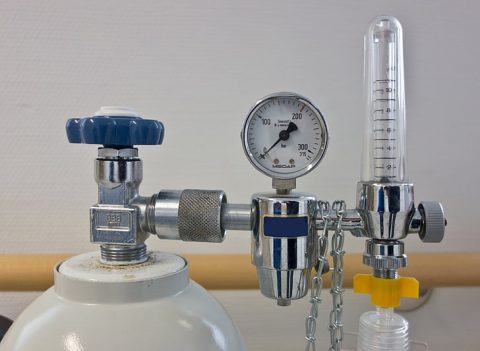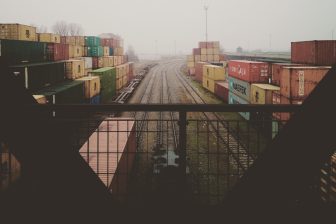
Inspection rules for rail transport oxygen cylinders relaxed
Due to the global outbreak of the coronavirus, the demand for liquid oxygen and oxygen cylinders have increased dramatically. These are often transported by rail, categorised as dangerous goods. In order to ensure that these vital goods continue to be delivered, the certain legal requirements are temporarily not applied.
This was reported by OTIF, the Intergovernmental Organisation for International Carriage by Rail. It concerns mostly the renewal of licenses or certificates. The transport of dangerous goods is usually subjected to strict rules to ensure safe transportation. However, as some of these procedures cannot be carried out due to office closures, the procedures do not have to be followed as usual, these rules have been relaxed.
Oxygen cylinders
It has been necessary to find a suitable way to continue using gas cylinders for medical gases when they are due for periodic inspection, OTIF explains. “In so doing, it must be remembered that, owing to the corona crisis, the demand for liquid oxygen has increased fivefold and the demand for oxygen cylinders has increased tenfold. Additional oxygen storage tanks also have to be provided in hospitals.”
Although inspections may currently not take, the cylinders may continue being used. “Safety is ensured because before and after the gas cylinders are filled, the safety-related pressure receptacle checks still have to be carried out.”
No tests and trainings
Currently, training or tests for dangerous goods safety advisers cannot be carried out in most RID Contracting States, OTIF adds. “This is because of the temporary closure of most systemically non-relevant institutions. Transitional measures had to be found to maintain the validity of dangerous goods safety advisers’ training certificates, even though they had expired.”
An arrangement has also been agreed for tank-wagons and tank-containers which cannot undergo the prescribed periodic or intermediate inspections on time during the period in which many workshops are also closed.
Also read:
Renewal of train driver license impossible during corona crisis





